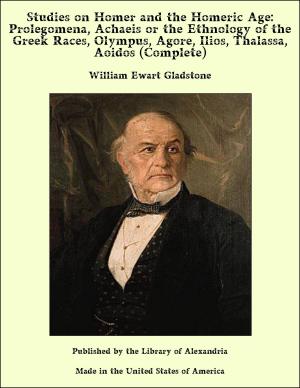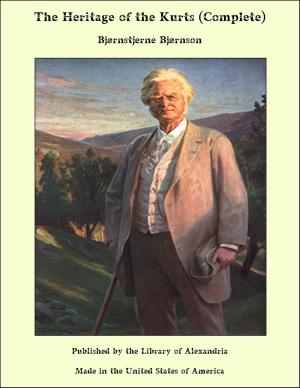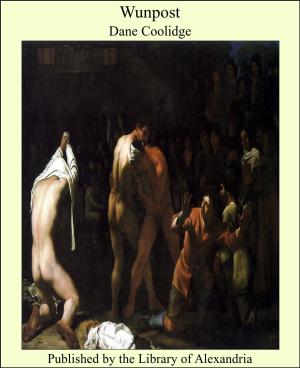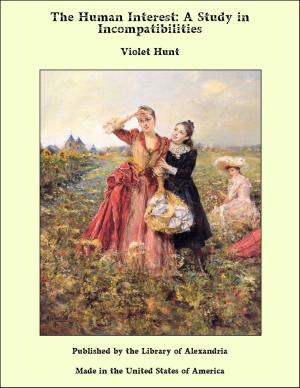Lectures on the Philosophy and Practice of Slavery as Exhibited in the Institution of Domestic Slavery in the United States with the Duties of Masters to Slaves
Nonfiction, Religion & Spirituality, New Age, History, Fiction & Literature| Author: | William A. Smith | ISBN: | 9781465557193 |
| Publisher: | Library of Alexandria | Publication: | July 29, 2009 |
| Imprint: | Library of Alexandria | Language: | English |
| Author: | William A. Smith |
| ISBN: | 9781465557193 |
| Publisher: | Library of Alexandria |
| Publication: | July 29, 2009 |
| Imprint: | Library of Alexandria |
| Language: | English |
The following pages contain the substance of Lectures on the subject of Domestic Slavery in the United States, which for several years have been delivered to the classes in Moral Science in Randolph Macon College. Since the year 1844, I have been frequently called on to discuss this subject on various popular occasions in Virginia and North Carolina. My classes in college were compelled to deal with the subject of domestic slavery. Not only the popular ideas in regard to African slavery in this country, but the specific treatment of this topic by numerous text authors in Moral Science, rendered this unavoidable. A deep conviction that the minds of young men were receiving a wrong, and, in the present state of the country, a fatal direction, both as regards the principles of the institution, and the institution itself, induced me to substitute the text authorities on the subject by a course of lectures. These lectures, therefore, were originally drawn up with a view to oral delivery. They were modified by the circumstances of their origin. In preparing them for the press, however, I was led to consider the class of persons for whose use they were chiefly designed, and at the same time to adapt them as far as possible to the general reader. I was aware of the difficulty of fixing definitely on the mind of the student the nature and limits of abstract truths, and that this difficulty is, if any thing, greatly increased when we pass to those whose reading is not characterized by habits of thought,—as would be the case with many of those whose interest in the general subject of slavery might induce them to read these lectures. The task of meeting these difficulties was encountered with a measure of painful distrust. My views on the subject of slavery, as a practical question, will be found very generally to accord with the popular ideas of those communities in which the African population chiefly resides. But, as a question of Moral Science, I will be found to differ, and in some aspects very materially, from those who have spoken and written on the subject. The closing lecture is on the duties of masters to slaves. On this point it may also appear that my views do not accord with those of some others. There are men whose views I judge to be entirely too loose on the whole subject. But I should consider any treatise on the subject of slavery as inexcusably defective that did not embrace the duties of masters to slaves; and I persuade myself that the number, if any, who take a different view of the subject will be found to be exceedingly small
The following pages contain the substance of Lectures on the subject of Domestic Slavery in the United States, which for several years have been delivered to the classes in Moral Science in Randolph Macon College. Since the year 1844, I have been frequently called on to discuss this subject on various popular occasions in Virginia and North Carolina. My classes in college were compelled to deal with the subject of domestic slavery. Not only the popular ideas in regard to African slavery in this country, but the specific treatment of this topic by numerous text authors in Moral Science, rendered this unavoidable. A deep conviction that the minds of young men were receiving a wrong, and, in the present state of the country, a fatal direction, both as regards the principles of the institution, and the institution itself, induced me to substitute the text authorities on the subject by a course of lectures. These lectures, therefore, were originally drawn up with a view to oral delivery. They were modified by the circumstances of their origin. In preparing them for the press, however, I was led to consider the class of persons for whose use they were chiefly designed, and at the same time to adapt them as far as possible to the general reader. I was aware of the difficulty of fixing definitely on the mind of the student the nature and limits of abstract truths, and that this difficulty is, if any thing, greatly increased when we pass to those whose reading is not characterized by habits of thought,—as would be the case with many of those whose interest in the general subject of slavery might induce them to read these lectures. The task of meeting these difficulties was encountered with a measure of painful distrust. My views on the subject of slavery, as a practical question, will be found very generally to accord with the popular ideas of those communities in which the African population chiefly resides. But, as a question of Moral Science, I will be found to differ, and in some aspects very materially, from those who have spoken and written on the subject. The closing lecture is on the duties of masters to slaves. On this point it may also appear that my views do not accord with those of some others. There are men whose views I judge to be entirely too loose on the whole subject. But I should consider any treatise on the subject of slavery as inexcusably defective that did not embrace the duties of masters to slaves; and I persuade myself that the number, if any, who take a different view of the subject will be found to be exceedingly small















